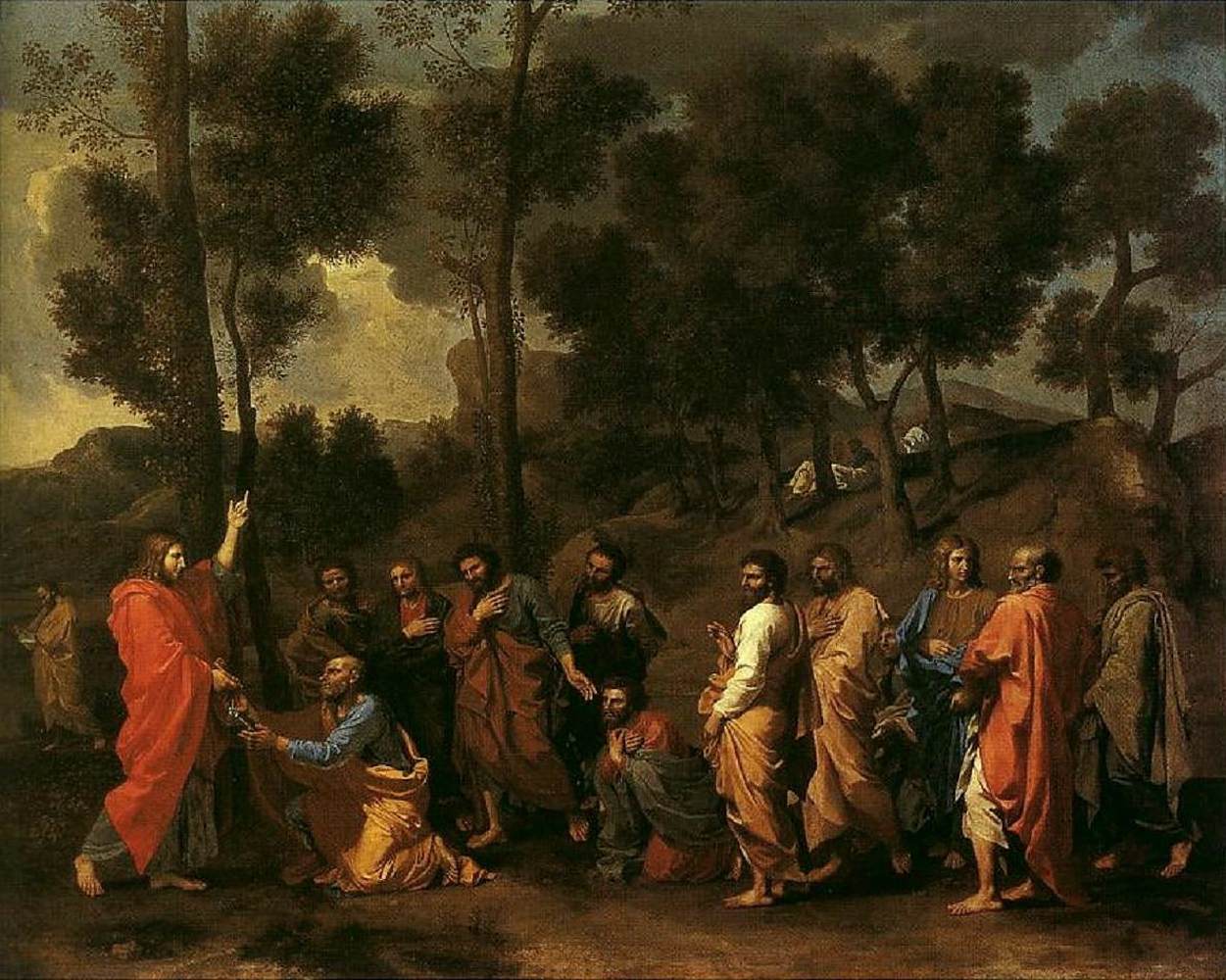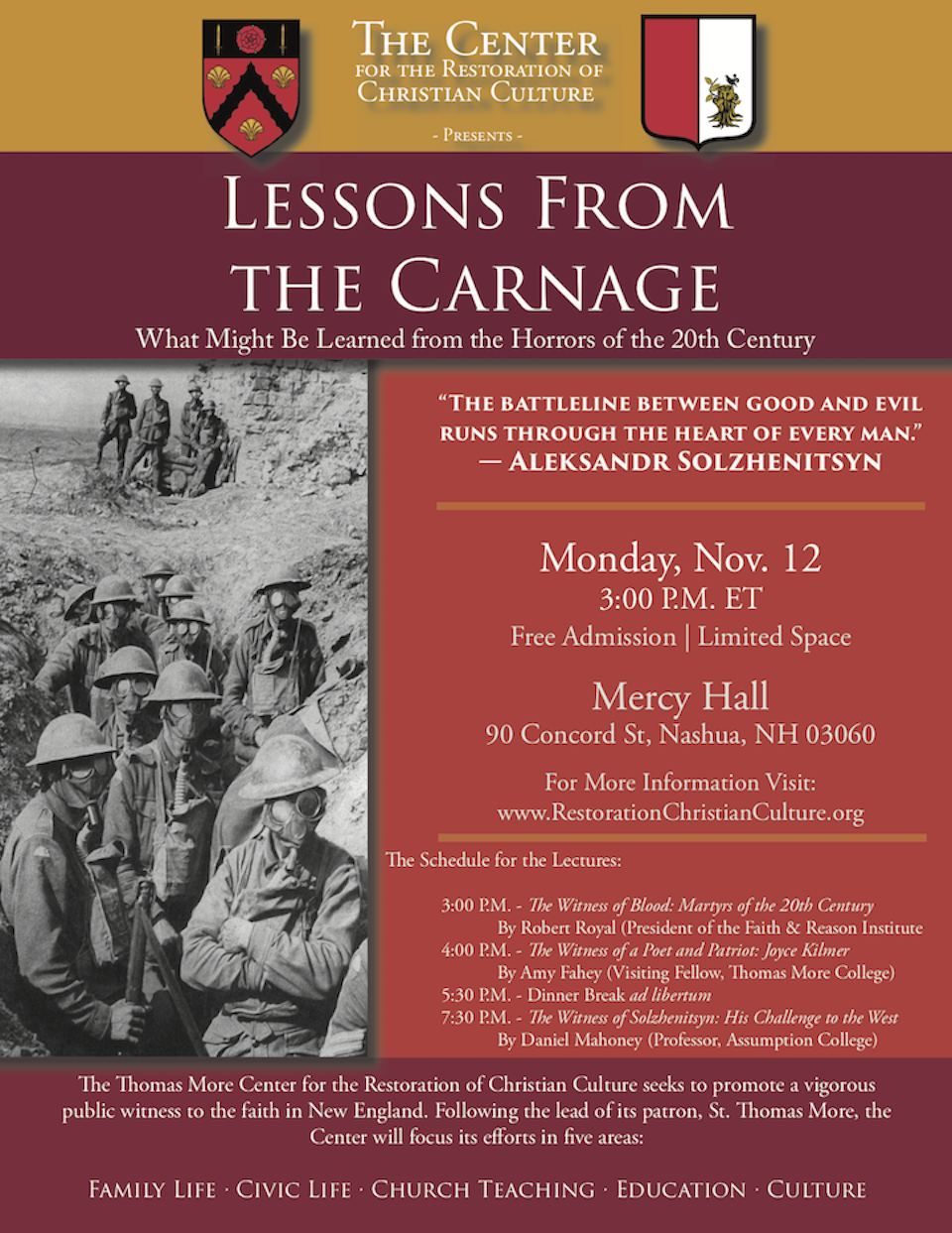I once heard a homily on the vocation of priests, which concluded with this challenge to the young men of the parish: “If there’s not at least some part of you that wants to be a priest, then you don’t know what a priest really is.”
At the time, being in my mid-20s and not far removed from my own discernment days, this struck me as a profound and underappreciated point. For one, it cuts against the notion of the ordained priesthood as some sort of ecclesial selective service; some men get their number called, some don’t. But what struck me most about the priest’s point was his confidence in the universality of the claim. He was making a subtle yet strong statement about what it means to be, not just a priest, but a man.
And he was right. There is something of the essence of manhood to be found in one who stands forth from the rest, for the sake of the rest, and makes an offering of sacrifice on behalf of those entrusted to his care. He does not lord his authority over his people; he lays down his life for them. Without equivocating too much about particular vocations, that’s a fair description of the vocation of all men.
If it’s true the priesthood reveals something about being a man, then it’s also true that fatherhood itself must reveal something of the essence of the priesthood. If a priest doesn’t understand something of what it means to be a father – in the spiritual if not the natural sense – then even though he is called “father,” he’ll have a hard time living his priesthood well.
And that brings us to the American bishops, who will meet in Baltimore next week for the annual U.S. Conference of Catholic Bishops’ general assembly. The sexual abuse crisis – and especially the failures of the bishops to adequately address that abuse – will be front and center.
There are many questions the bishops will need to ask themselves and one another. But there is one question that cuts to the heart of the outrage and anger felt by millions of Catholic faithful: What kind of father, what kind of man, responds to the abuse of his own children the way so many of our bishops have responded to the abuse of their own?
To ask the question is to answer it.
How many bishops understand that their failures are failures of fatherhood, and that their betrayals and lies are felt with the same devastation? How many bishops have the courage to call out their brother bishops – privately even – in such terms?
Next week’s USCCB meeting will begin on Monday with a full day of “prayer and discernment,” concluding with Mass. This will give the bishops an opportunity to contemplate these questions, if they have the courage.
As providence would have it, the readings for Monday’s Mass should help an examination of conscience.
The first reading is from Paul, who instructs Titus, his “true child” in faith, in the selection of men for the priesthood: “Appoint presbyters in every town, as I directed you, on condition that a man be blameless.” Paul then directs Titus in his responsibilities as a bishop, exhorting him to moral rectitude and concluding with the necessity of “holding fast to the true message as taught so that he [the bishop] will be able both to exhort with sound doctrine and to refute opponents.”

These are good and edifying things for bishops (and all of us) to hear. But if the words of St. Paul are edifying, the words of Christ to the Apostles in Monday’s Gospel might have a different effect:
Things that cause sin will inevitably occur, but woe to the one through whom they occur. It would be better for him if a millstone were put around his neck and he be thrown into the seat han for him to cause one of these little ones to sin.
How many bishops approach the duties of their office with fear and trembling, lest they trade their miters for millstones?
Our Lord didn’t leave off with that warning. It’s not enough for the Apostles to keep their own house in order if they ignore what is going on around them. The apostles are responsible for the “little ones,” but also for each other.
Be on your guard! If your brother sins, rebuke him.
A bishop who will not speak truth to his brother bishops, a bishop who will not offer (or will not accept) fraternal correction, not only fails in charity toward his brother bishop, he fails the “little ones” who will suffer most for his negligence.
Again, this is not a question of bishops “lording it over one another” but of taking seriously their vocations as a bishop, a priest, a father, and a man.
And when a bishop does fail? What then?
. . .and if he repents, forgive him. And if he wrongs you seven times in one day and returns to you seven times saying, “I am sorry,” you should forgive him.
Now here’s a cause for examination of conscience for the rest of us. Our bishops are men, i.e., they are sinners. Without disregarding the need for prudent and just punishment, are we willing to forgive bishops when they repent and ask forgiveness? And are we willing to distinguish between honest mistakes and failures in judgment, on the one hand, and depravity and corruption on the other? Or are we so sure of the righteousness of our anger as to make such distinctions unnecessary?
Let’s hope and pray that the bishops have the courage and humility to face the hardest questions, and that we all have the wisdom to respond, in earnest, as the Apostles did to our Lord’s admonishments: “Increase our faith.”
*Image: The Sacrament of Ordination (Christ Presenting the Keys to Saint Peter) by Nicolas Poussin, c. 1638 [Kimbell Art Museum, Fort Worth, TX]. Poussin painted the Seven Sacraments on commission from his patron, Cassiano dal Pozzo, secretary to Cardinal Francesco Barberini, nephew of Pope Urban VIII.
















